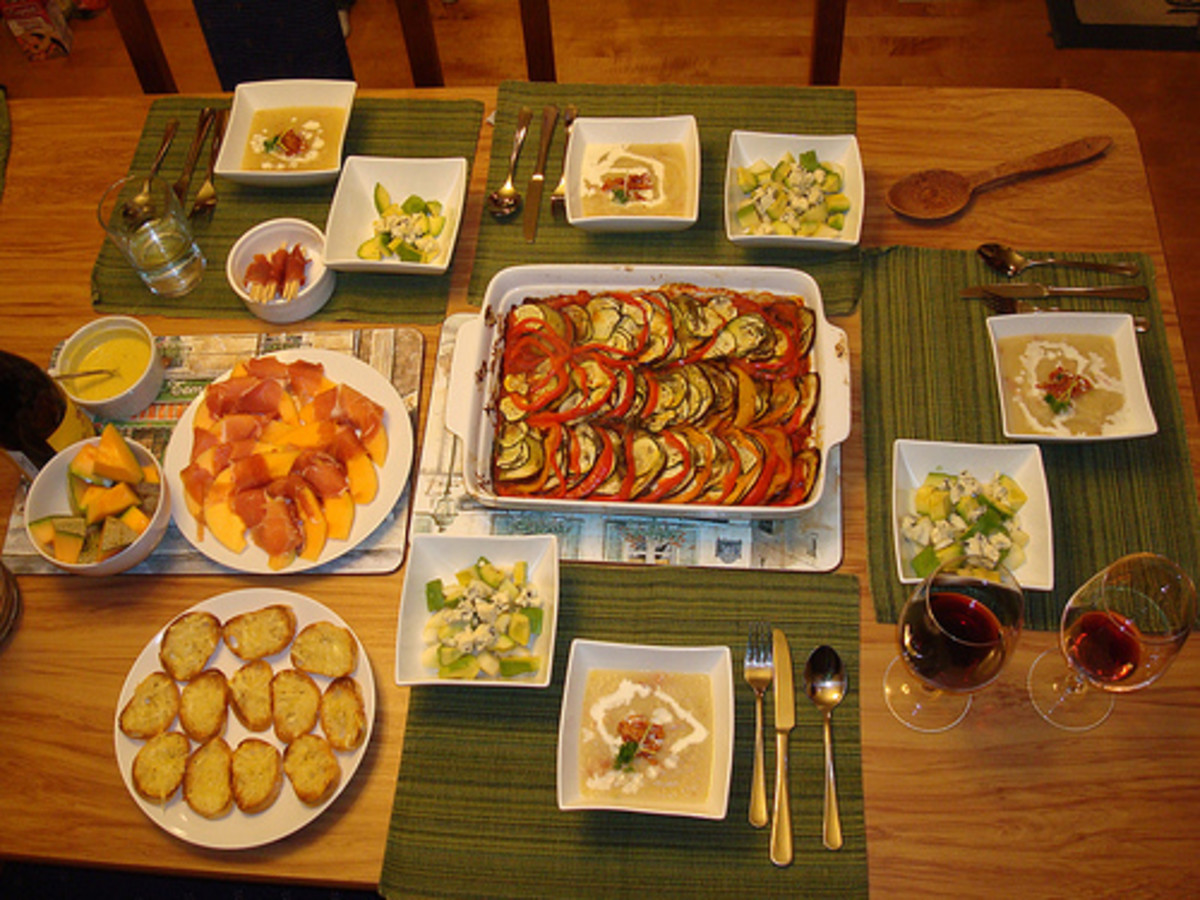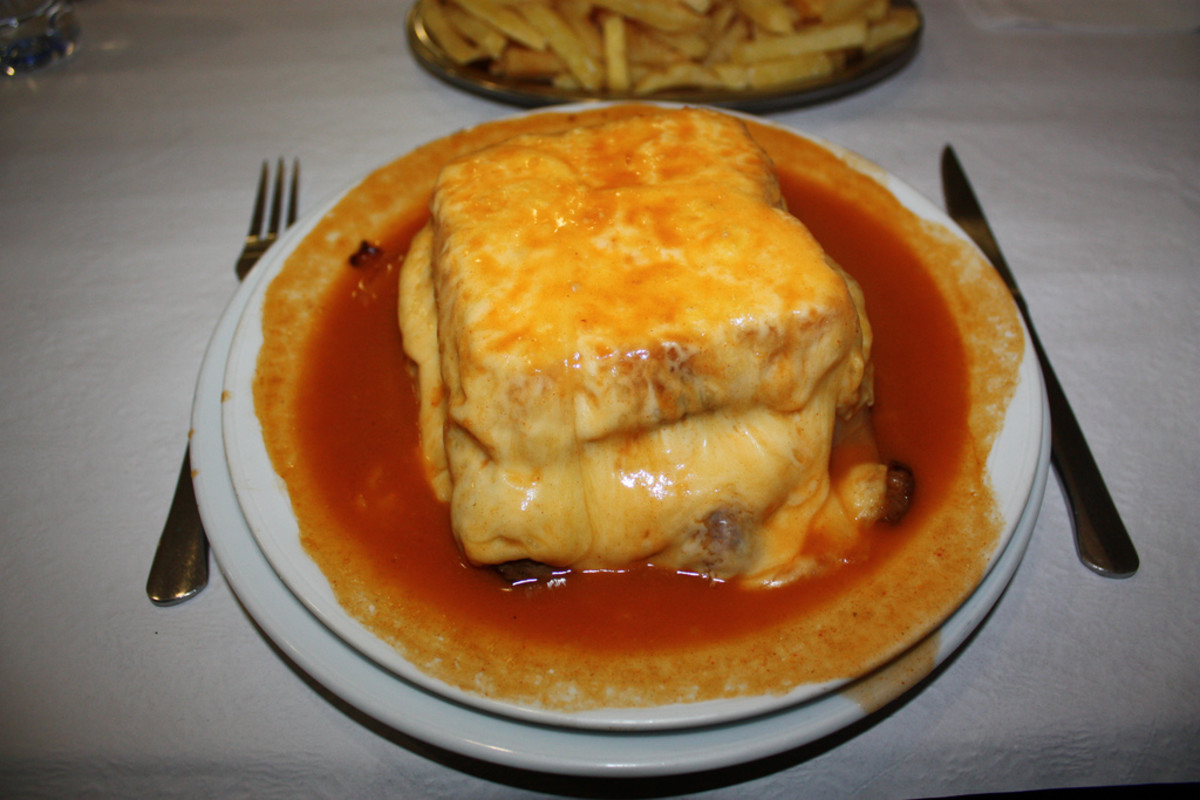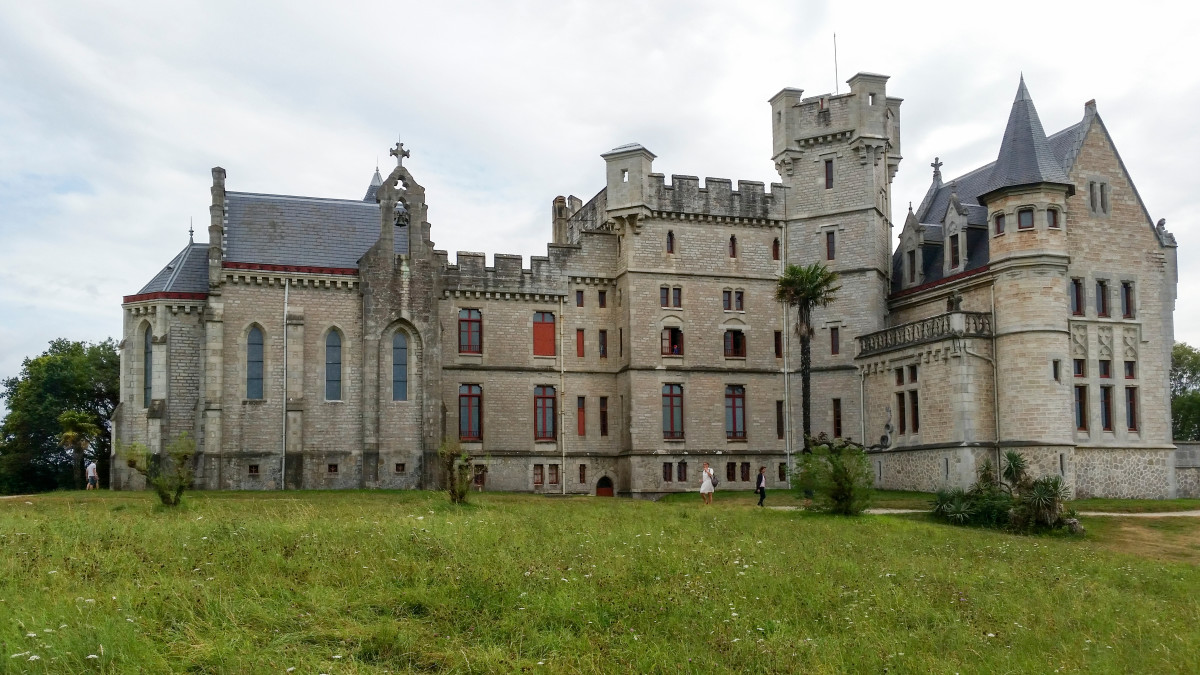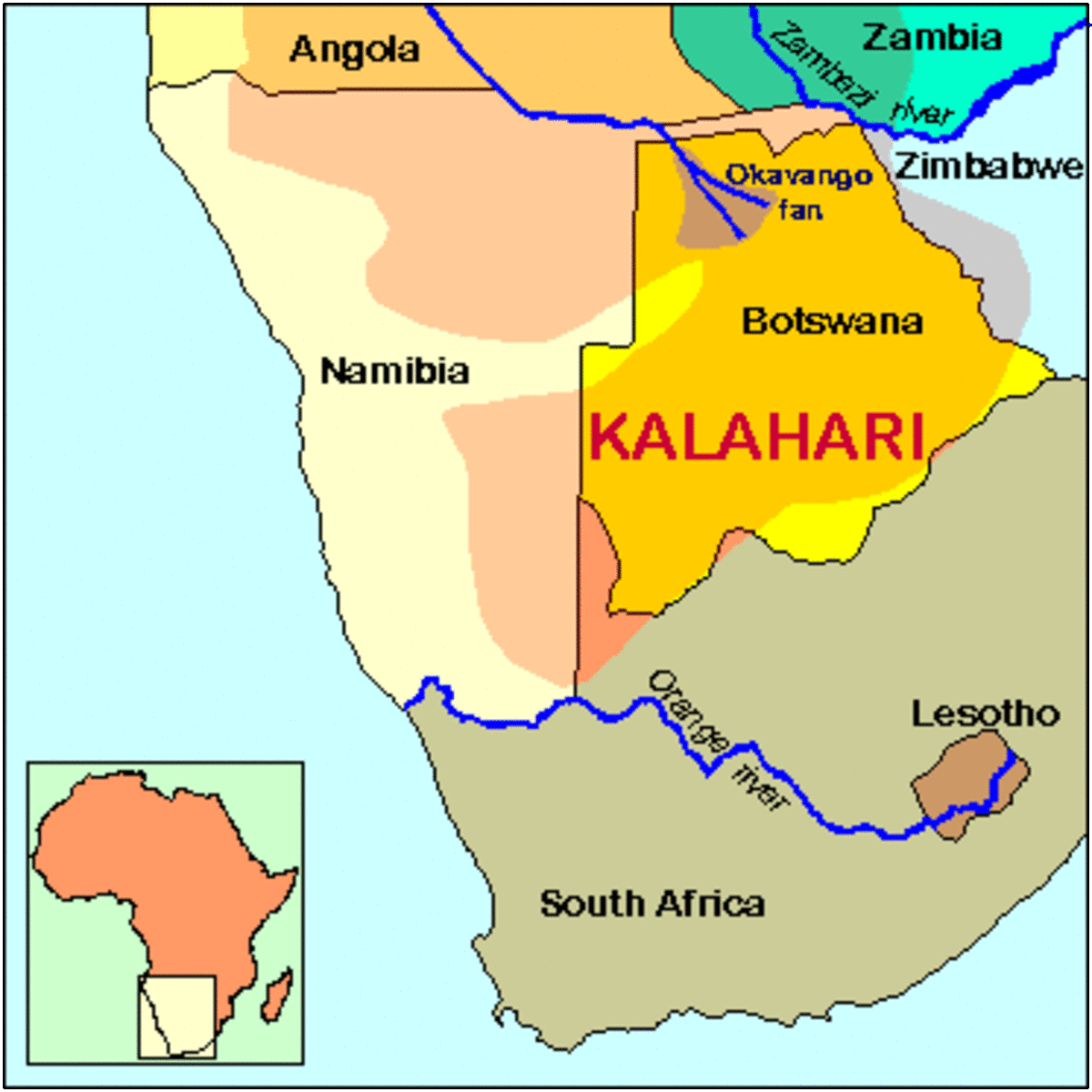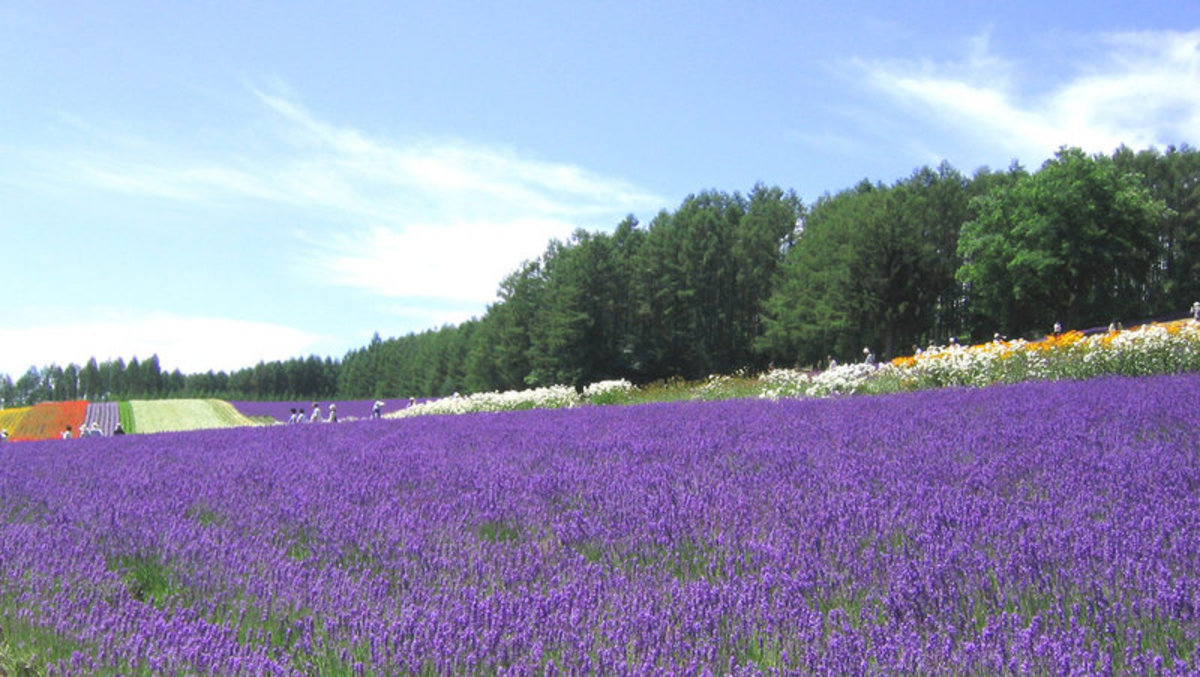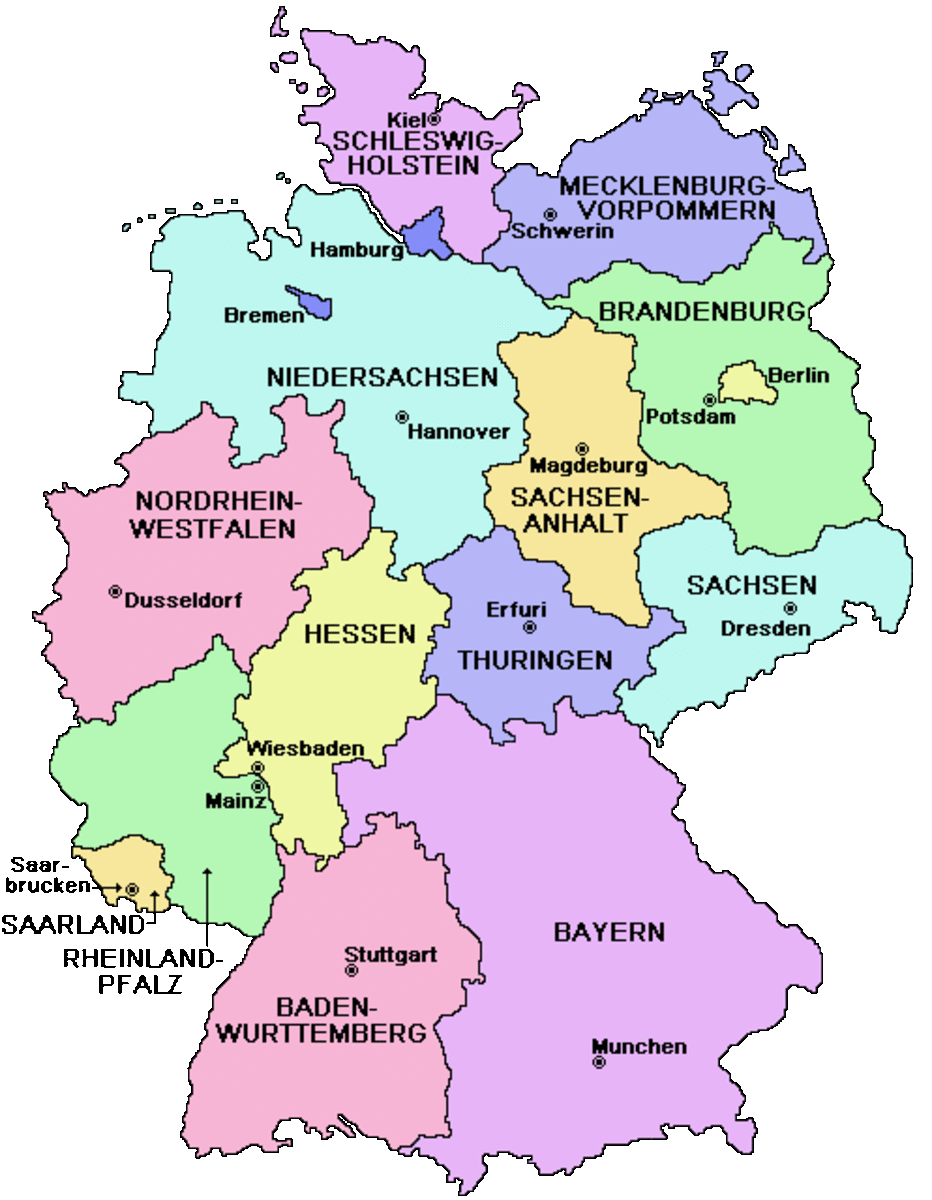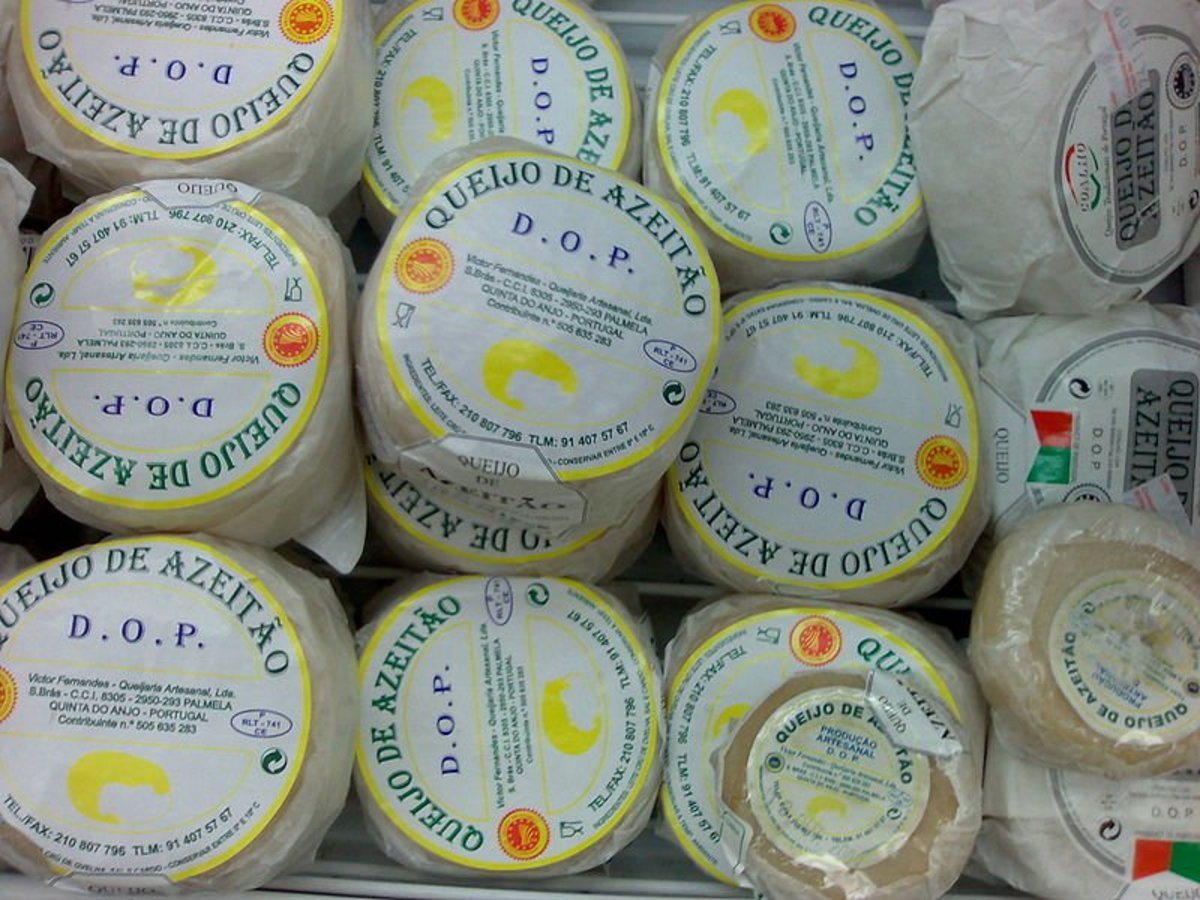- HubPages»
- Food and Cooking»
- World Cuisines»
- Western European Cuisine
Basque History and Legends, Gravies and Sauces
Mountains In the Basque Countryside
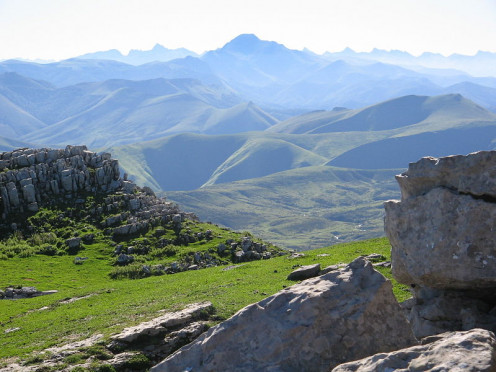

No Pan Drippings Needed
The Basque are a unique people in several respects. Research and speculation circa 1990s - 2000s suggested that Bascos are genetically different from the rest of us. Although not much is published on this theory, the Basque cultural knowledge tells us the following stories, as confirmed by information provided for a 1980s Midwestern cooking show, provided by Basque restauranteurs Mr. and Mrs. Louis Erriguible and associates.

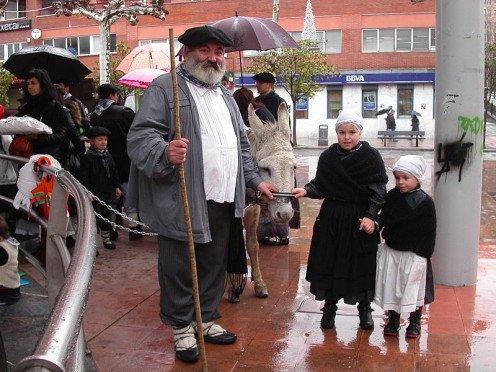
Unknown History
Basque was once an independent nation, but today is an ethnicity considered French or Spanish. Living in the Pyrenees, the people live across southwestern France and Northeastern Spain. Their native language is unrelated to any other language/language group in Europe.
Several theories exist that attempt to join the Basque language with others, but are inconclusive. In addition, the language has assimilated some vocabulary from Latin and other languages, creating nearly a dozen separate dialects in the 20th century. Three Japanese universities have programs to teach some version of the language, including University of Sofia (Tokyo), Kansai Gaida (Osaka). and a facility in Kobe. Meanwhile, heads of government in France and/or Spain have intermittently attempted to suppress the language, unsuccessfully – language immersion schools are available in the Pyrenees.
Overall, we do not know Basque origins and cannot detect a migration pattern. This suggests that they are unrelated to other Europeans, possibly 1) migrating from somewhere unknown or 2) in the tradition of Australian Aborigines and Aboriginals of nearby countries, comprising The People that Have Always Been Here.
Basque Wine Gravy
INGREDIENTS
- 2 Cups beef stock (substitute vegetable stock if you like)
- 1 Cup dry red wine
- ¼ Pound sliced mushrooms
- 2 Tbsp olive oil
- 1 bay leaf
- 2 cloves garlic, peeled and crushed
- 4 Tbsp butter (or additional olive oil); 6 Tbsp all purpose flour (thickening)
- 1 tsp thyme
- Salt and pepper
INSTRUCTIONS
- Pour the beef stock and wine into a large saucepan over moderate heat and simmer.
- Heat a skillet over moderate heat and then add oil and garlic. Sauté garlic until just browned.
- Add mushrooms, thyme and bay leaf. Sauté all until mushrooms are tender; remove them from the skillet.
- Add butter to the skillet. Melt butter and add flour to form a roux. Continue to cook to a light brown hue.
- Pour the roux into the simmering stock and mix well.
- Add mushrooms to stock; simmer 10 minutes. Salt and pepper to taste and serve.
UFOlogists' Opinions
UFOlogists may take the Bascos to be extraterrestrials. Anthropologists may see evidence that several species of humans inhabited the earth simultaneously.
The last theory repudiates 1) the origins of man in a single Garden of Eden ( Middle East or Africa) and 2) global human immigration from a single point – except that the trail of languages, cultures, and DNA insist upon that migration.
Basque Knowledge
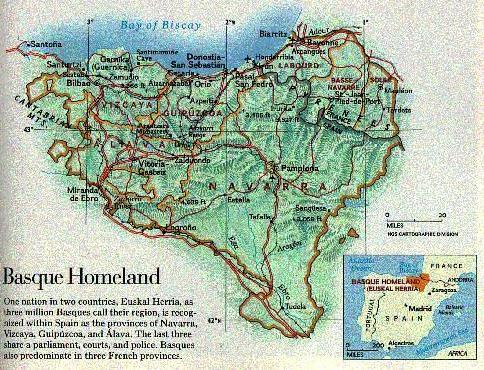
One or Many?
If multiple species of human lived at once on earth, then the single-point theory for Homo Sapiens could hold. I recall that we do not know the origins of the people in the Land of Nod, whom the Biblical sons of Adam married. Angels or a different human group or extraterrestrials, as opposing opinions suggest?
Celebrity William Shatner proclaims, “When I get to Heaven, I have several questions for God.” I look forward to knowing all about it. Whatever the status, it is all fascinating – especially the cuisine that has resulted!
Basque is a top mystery joining at least two others: 1) the relation of the Hungarian language to Finnish, but not to other European languages - as if Finns were air-dropped from a plane into Hungary, and 2) an Aboriginal nation in New Zealand found in DNA tracking, (National Geographic, 2005) to be apparently unrelated to other humans. More puzzles.
Basque Tomato Sauce
INGREDIENTS
- 4 Tbsp olive oil
- 2 Cups chopped yellow onion
- 1.5 Cups diced green bell pepper
- 8 cloves of garlic, peeled and crushed with a knife blade
- 3 Cups diced tomatoes (fresh)
- 1, 4-oz can Mexican chilies, pureed or chopped fine
- ¼ Cup chopped parsley
- 5 Cups beef stock (substitute vegetable stock if you like)
- Salt and pepper to taste
INSTRUCTIONS
- In a large pot, place the onion, garlic, green bell pepper, and oil; sauté until onions are tender.
- Add tomatoes, chilies, and parsley; simmer until all vegetables are tender.
- Add beef stock, cover pan, and simmer for 60 minutes.
- Uncover pan and simmer 60 minutes to thicken.
- Salt and pepper to taste and serve.
Guernica, Holy City of the Basque People
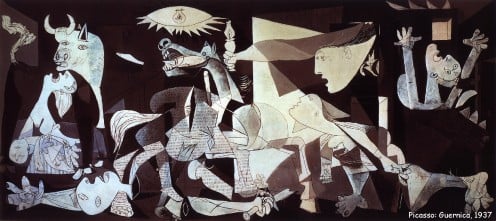
Descended From Noah
The Bascos have lived in the Pyrenees region since at least 200 BC, while France and Spain confiscated their land and dissolved their nation.
Thus, the Bascos own no nation or land, similar to Israel before 1948.
Bascos trace their lineage from Noah and the Great Flood, being descended from Noah's grandson, Tubal. Perhaps Noah, his wife, or Tubal's wife was different genetically from others and that difference was expressed in Tubal's descendants. I don’t know, but it is an interesting foundation story for a people.
The Basco stories tell us that Tubal settled in what is now Europe before the Tower of Babel was constructed (before the confusion of languages in Genesis 11:1-9) and brought with him the original language from the Garden of Eden: Euskera.
Piri Piri
Piri Piri is a blend of spices used by the Basque, but also found in Spain and Portugal. Recently, I have found it in African recipes as well, so Piri Piri is a distant traveler. This spice blends is a hallmark of the cuisine in these areas, just as curry spice mixes are found in India and other nations. Piri Piri can be used as seasoning and in a sauce or gravy. The Basque version is highly flavorful and includes beverage alcohol.
INGREDIENTS
- 1 quart size canning jar and lid
- Dried hot red peppers, very small
- 1/2 Cup Whiskey
- Olive oil and Vegetable oil
INSTRUCTIONS
- Fill the jar half full of dried peppers and add whiskey.
- Fill the remaining portion of the jar with a mixture of half olive and half vegetable oil.
- Cap the jar and allow to sit 30 days, shaking occasionally to mix.
- As you use the sauce, add additional olive-vegetable oil mixture to the jar.
Basque Contry Folk Song - Santa Águeda
Piri Piri Sauce
INGREDIENTS
- ½ Pound butter
- Juice of one lemon
- 2 tsp Piri Piri
- ¼ tsp instant chicken bouillon
INSTRUCTIONS
- Melt butter in a skillet, add Piri Piri, lemon juice, and chicken bouillon. Heat, stir, and serve.
A Story From Roncalese, an Extinct Basque Dialect
The Tribute of the Three Cows, a Spanish Holiday (gospain.com and others)
Annually since the year 1375, on a July 13th holiday, the mayors of the Roncal Valley (Navarre, Spain) accept the Tribute of the Three Cows from the mayors of the Baretous Valley (France). This holiday celebrates the original agreement that ended the feud over grazing rights between the Basque peoples in the two valleys. An actual war had been fought with many fatal casualties.
The dialogue between mayors each July is this, in Spanish (the first part, once for each cow):
Roncalese mayor president (loudly): “Are you coming, as in past years, to pay the tribute?”
Baretous mayors: “We are, señor.”
Roncalese mayor president: “Are you coming, as in past years, to pay the tribute?”
Baretous mayors: “We are, señor.”
Roncalese mayor president: “Are you coming, as in past years, to pay the tribute?”
Baretous mayors: “We are, señor.”
Roncalese mayor president:
“So, let there be peace.”
Baretous mayors:
“ So let there be peace.”
Codfish Pil Pil (Cod with Egg Gravy)
This dish is also popular in Spain and Portugal. Salt cod has been a winter staple in these countries and a source of survival. Basque, Spanish, and Portuguese immigrants to America passed this dish down to their descendants, who continue to prepare it as a tradition and a tribute to their ancestors. It is traditionally part of every Basque dinner.
INGREDIENTS
- 1 Pound salt cod, without skin and bones
- 1 Tbsp olive oil
- 4 Garlic cloves, peeled and crushed
- 1 Cup Chicken Stock
- ¼ tsp red pepper flakes
- 1 Large or Jumbo egg
INSTRUCTIONS
- Cut salt cod into 1-inch pieces and soak in cold water for 24 hours, changing water several times.
- In a large pot, cook cod in fresh water until tender. Drain, cool, and set cod aside.
- In a large skillet, sauté garlic in oil until just lightly browned.
- Add remaining ingredients, except the egg, and bring to a simmer.
- Remove cod with a slotted spoon to a serving plate.
- Reduce the heat under the skillet to low, beat the egg, and add to the skillet.
- Cook over low heat to thicken and pour over the cod to serve.
Basque Cooking Contests
The Basque Country - Overview
Genesis 11:1-9 (New Living Translation) - Tower of Babel
- At one time all the people of the world spoke the same language and used the same words.
- As the people migrated to the east, they found a plain in the land of Babylonia and settled there.
- They began saying to each other, “Let’s make bricks and harden them with fire.” (In this region bricks were used instead of stone, and tar was used for mortar.)
- Then they said, “Come, let’s build a great city for ourselves with a tower that reaches into the sky. This will make us famous and keep us from being scattered all over the world.”
- But the Lord came down to look at the city and the tower the people were building.
- “Look!” he said. “The people are united, and they all speak the same language. After this, nothing they set out to do will be impossible for them!
- Come, let’s go down and confuse the people with different languages. Then they won’t be able to understand each other.”
- In that way, the Lord scattered them all over the world, and they stopped building the city.
- That is why the city was called Babel, because that is where the Lord confused the people with different languages. In this way he scattered them all over the world.



